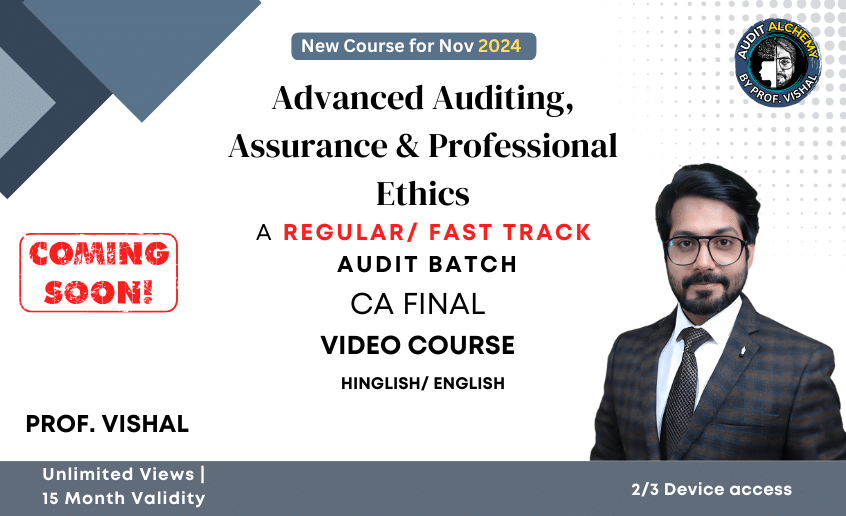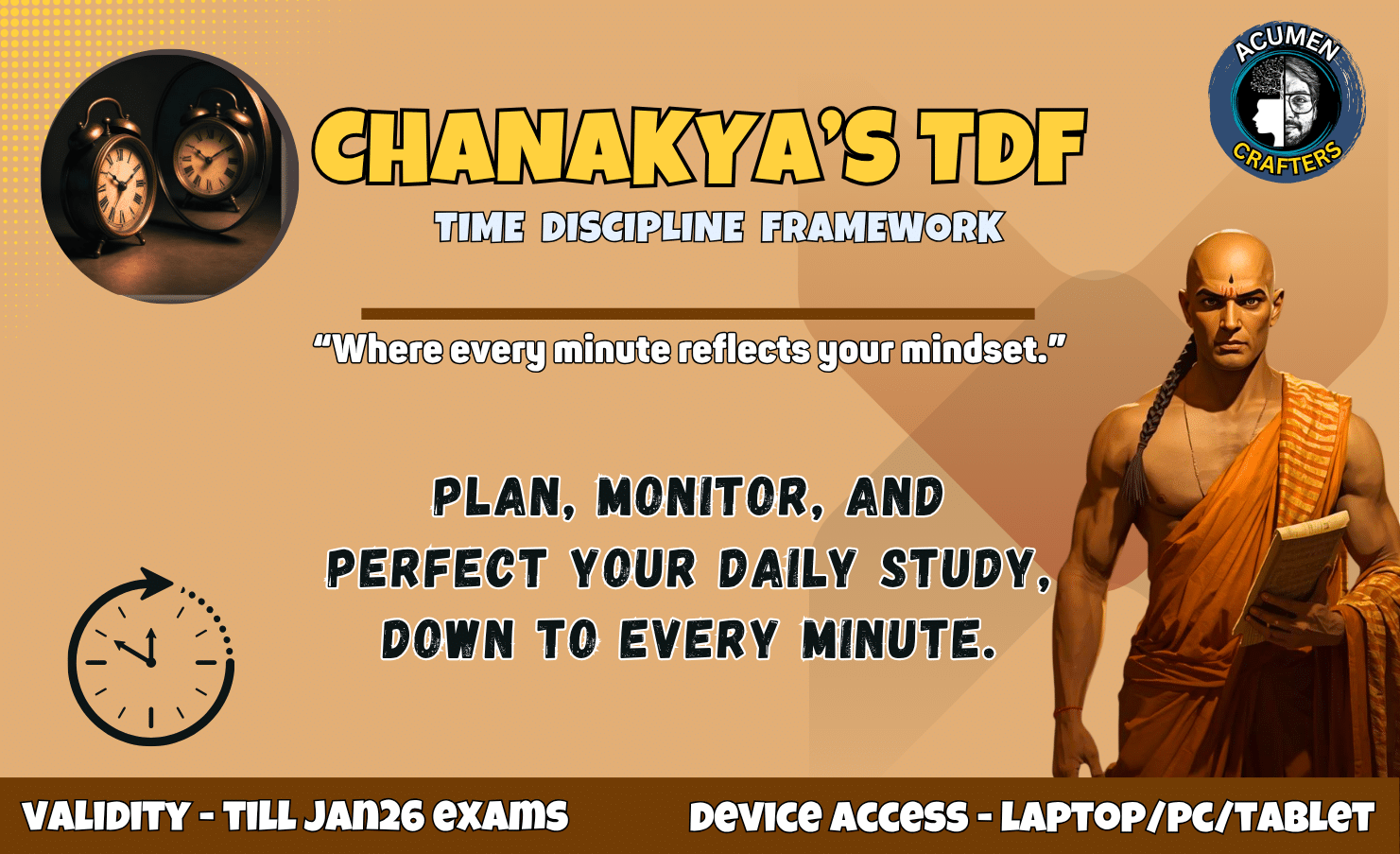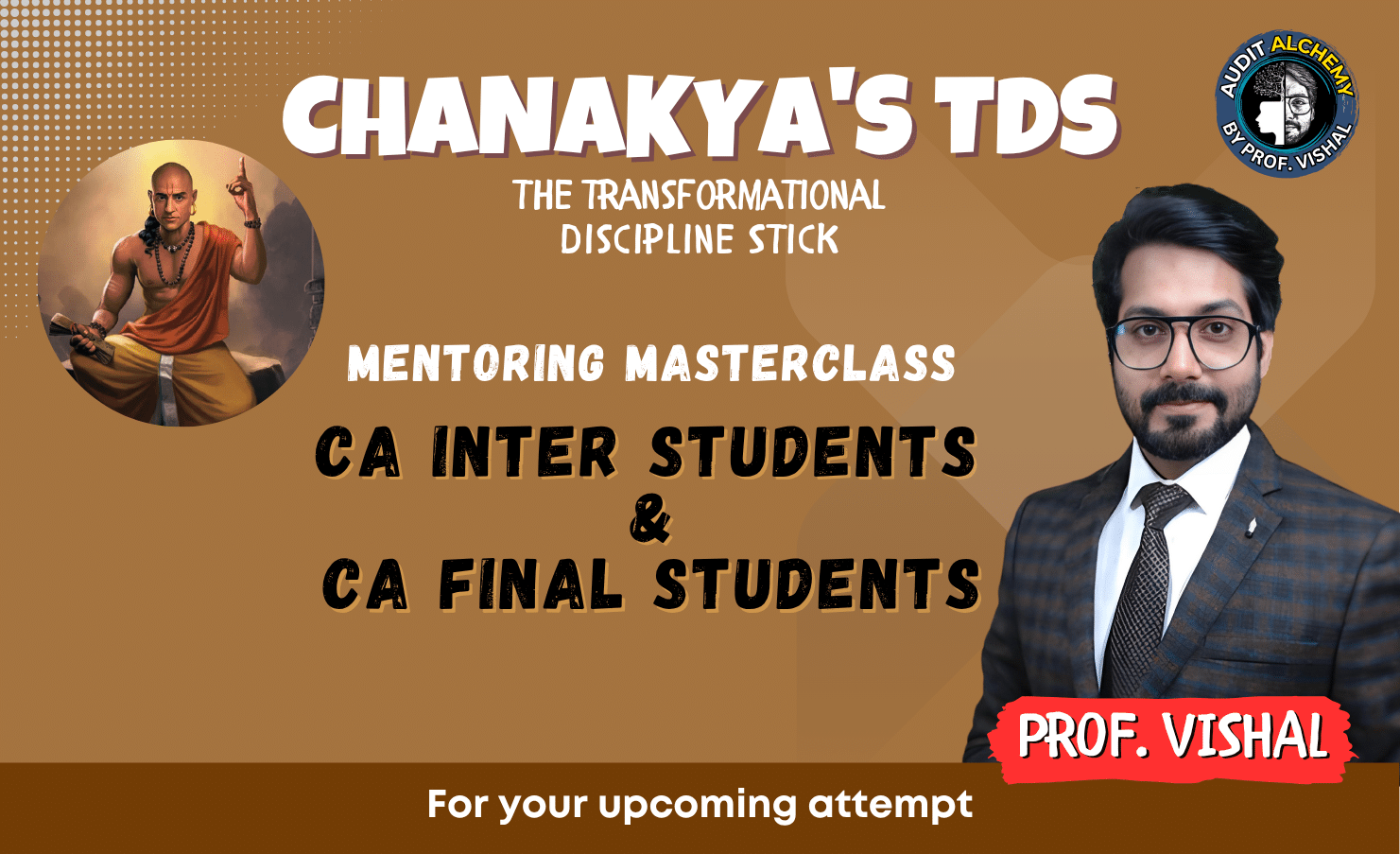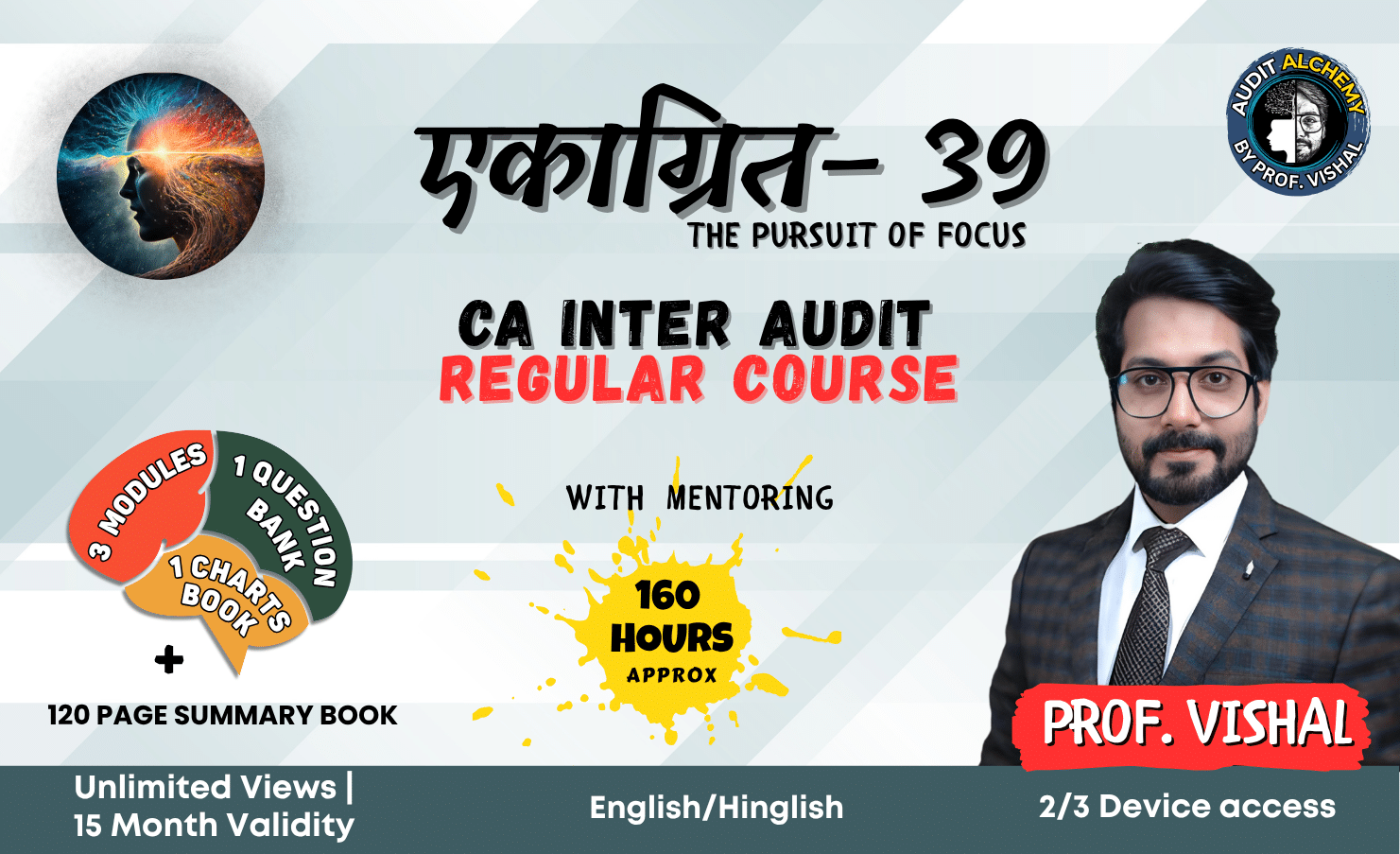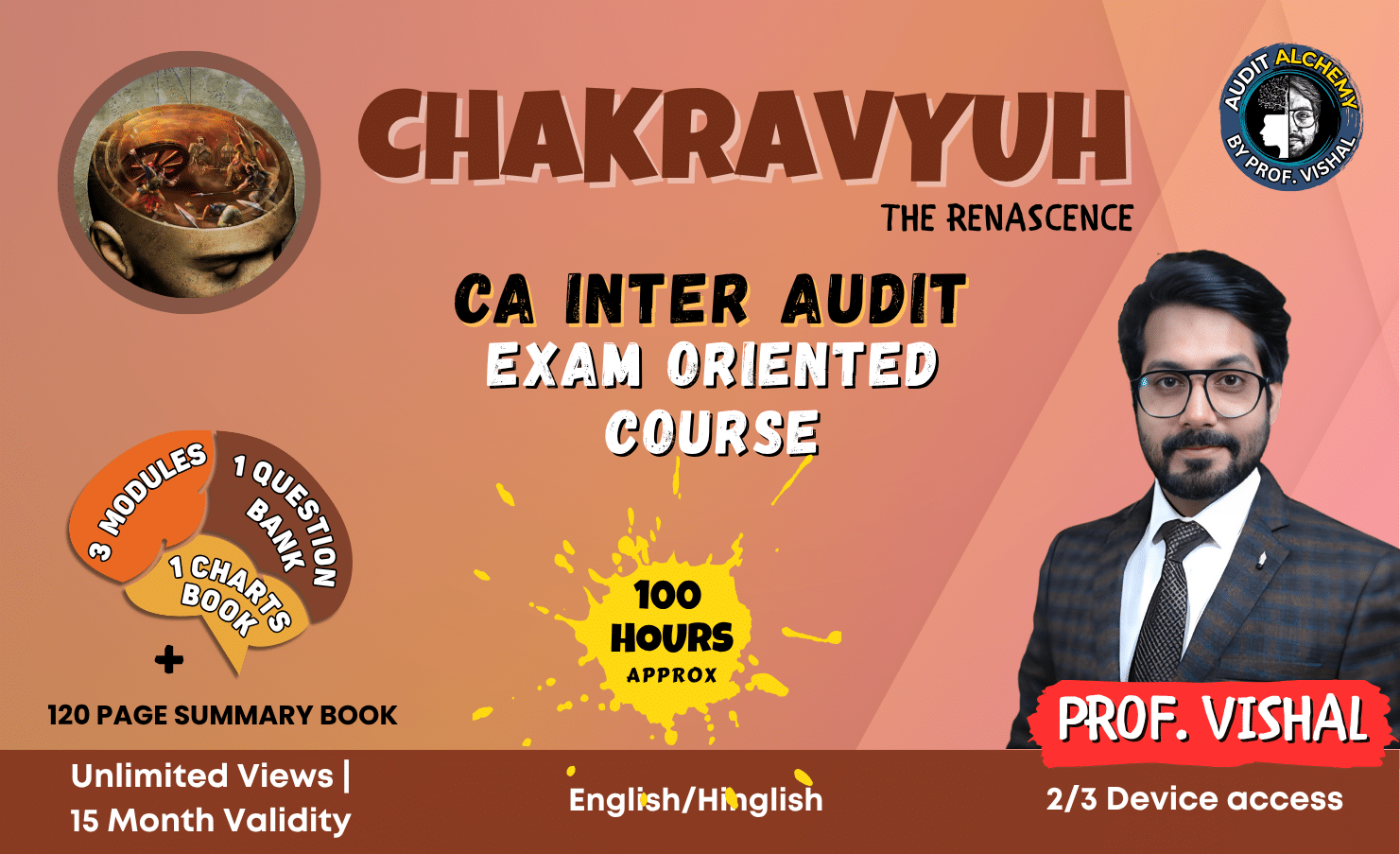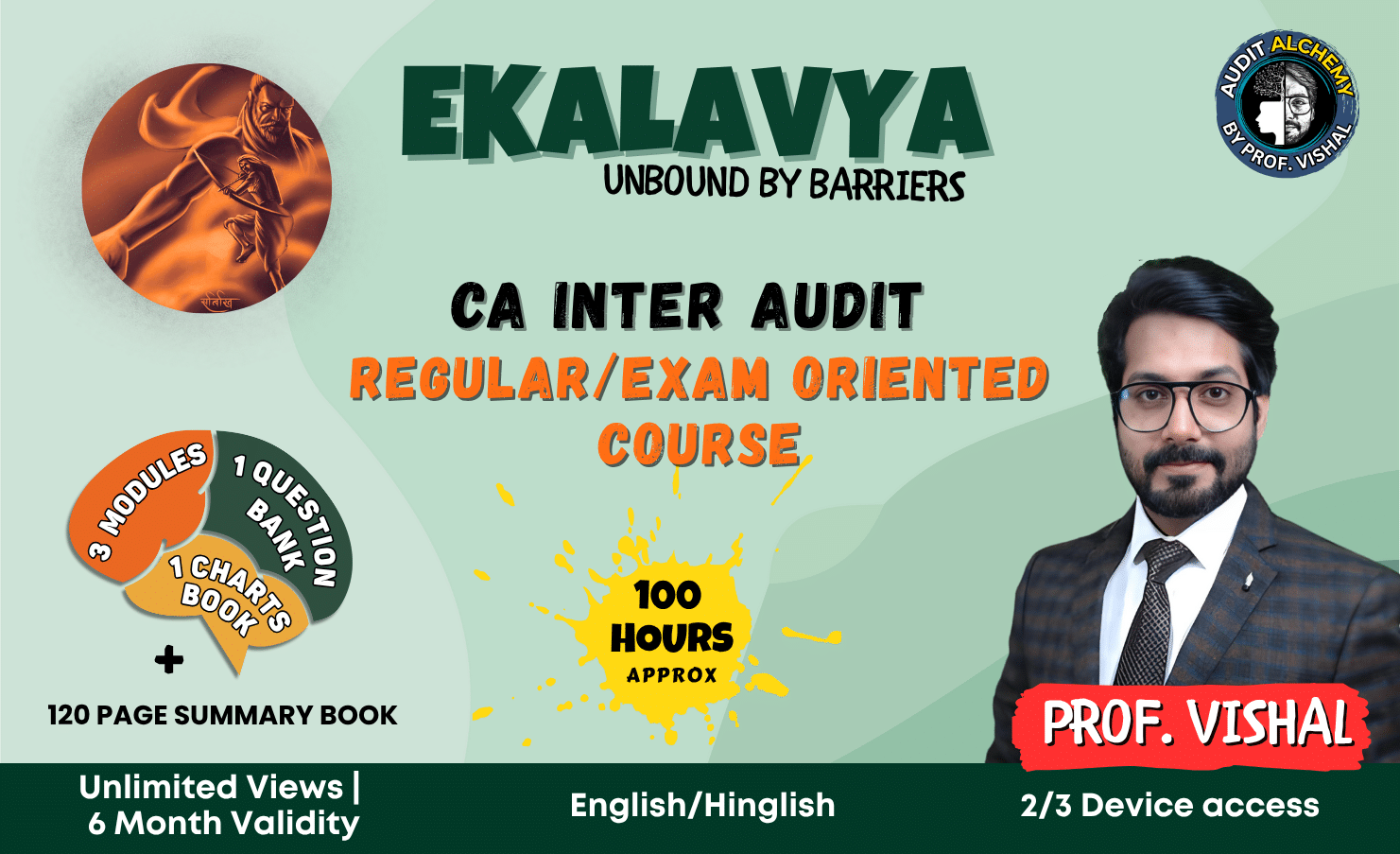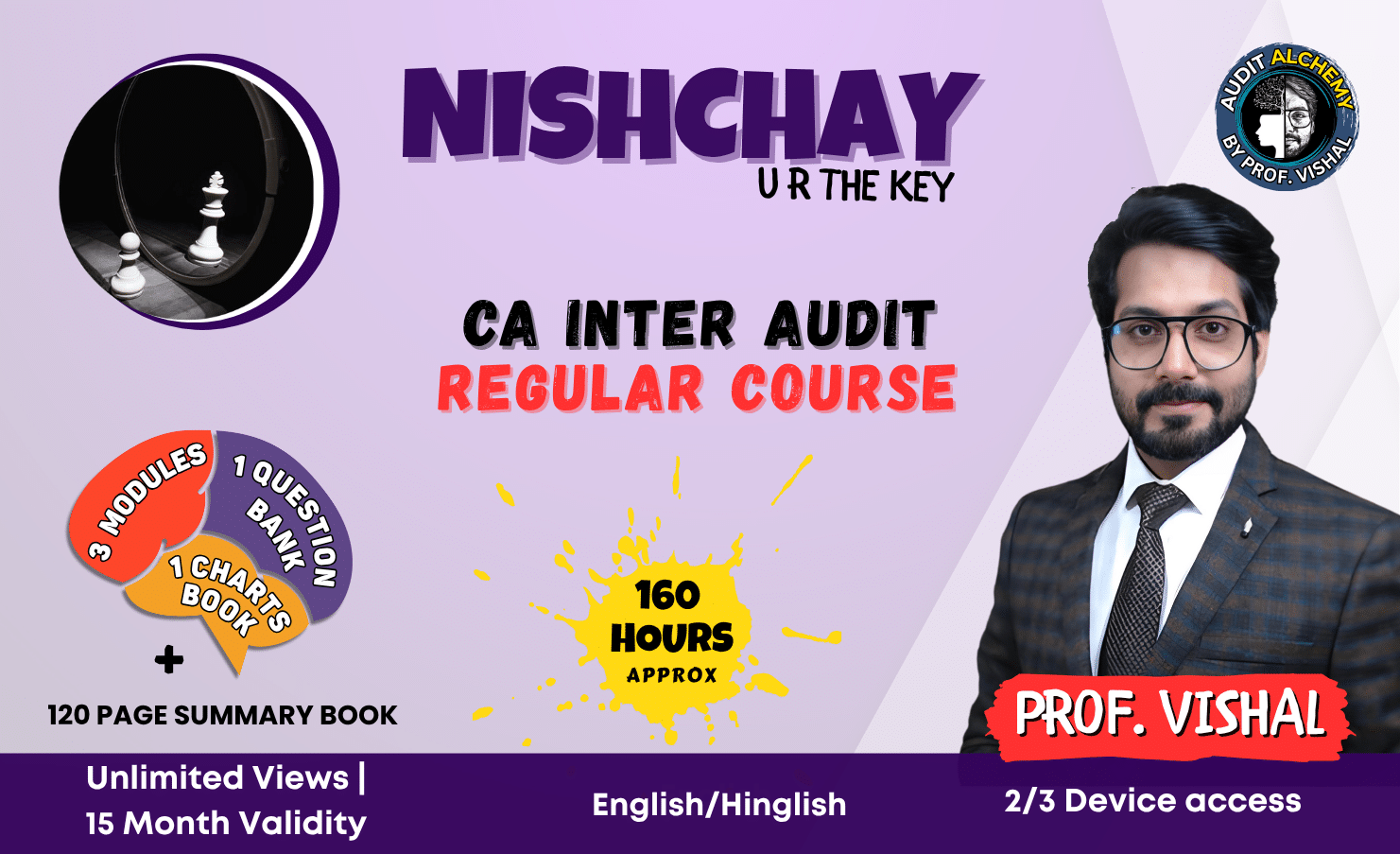Cracking the CA Intermediate exam might seem like a puzzle, especially with the revamped format since 2018. Despite four years having passed, students are still on a quest to find the ultimate strategy for mastering the CA Inter group 1 subjects. It’s time to put distractions aside and dedicate yourself wholeheartedly to your studies. Remember, the key to conquering the CA Intermediate exam is securing a minimum of 40% in each subject and 50% overall.
The CA Intermediate syllabus comprises eight subjects, neatly divided into two groups. While all subjects are significant, certain topics within each subject offer better scoring opportunities without excessive time investment.
However, we encourage you to aim for excellence and set your sights on achieving a remarkable single-digit rank. In this article, we’ll delve into subject-specific strategies that will equip you to conquer the CA Intermediate Group 1 papers. Stay tuned for our next article, which will tackle Group 2 papers.
For a comprehensive understanding, you can explore our detailed article on the CA Intermediate Course.
Note: Ensure you read the entire article to capture the essence of the discussion.
Group 1 Encompasses four subjects:
Subject 1: Accounting
Subject 2: Corporate Laws and Other Laws
Subject 3: Cost and Management Accounting
Subject 4: Taxation
Starting from the 2023 exams, ICAI has introduced changes to the syllabus, streamlining it from eight subjects to six. For a comprehensive grasp of the new scheme, I recommend delving into our comprehensive article on the subject.
Now, let’s embark on a journey to understand the strategies for each subject within Group 1.
Embarking on an Effective Study Plan for Accounting
Accounting holds a unique position as a scoring subject in both the CA Intermediate and CA IPCC. Many students elevate their overall scores through a strong performance in the Accounting paper.
Noteworthy topics encompass:
• Accounting Standard (encompassing AS, IND AS, IFRS)
• Preparing and Presenting Financial Statements in line with Accounting Standards
• Companies Accounts
• Accounting for Special Transactions
• Special Aspects of Accounting
• Partnership Accounting (covering Amalgamation, conversion to a company, sale to a company, LLP-related topics)
Accounting Standards, IND AS, and IFRS are keystones within the curriculum. These areas not only hold relevance but also boast a relatively approachable nature. Accounting Standards contribute a significant 20 marks to the examination. Expect questions related to amalgamation, accounting for 8 to 16 marks.
Topics encompassing Accounting for Incomplete Records and Partnership Accounts each carry a weight of around 8 marks. The domain of Hire Purchase holds an approximate weight of 5 marks.
Initiate your preparation by acquainting yourself with Accounting Standards, IFRS, and IND AS. Grasp the theoretical concepts and engage with practice materials for optimal outcomes.
Navigating Corporate and Other Laws
Corporate and Other Laws encompass two distinct sections: Companies Law and Other Laws. While Companies Law contributes a substantial 60 marks, the remainder is attributed to Other Laws, carrying 40 marks.
The domain is expansive, necessitating consistent revision. Mnemonics play a pivotal role in retaining section details. Company Law carries a significant weight and offers notable scoring potential. Other Laws contribute 40 marks and hold comparable complexity to Company Law.
Despite the higher marks linked with Company Law, it’s essential not to underestimate Other Laws. The CA Intermediate exam pattern mandates a comprehensive approach, ensuring that all components receive due attention.
Topics within the Companies Act span a spectrum:
• Preliminary
• Company Incorporation and associated matters
• Prospectus and Securities Allotment
• Share Capital and Debentures
• Acceptance of Deposits by Companies
• Registration of Charges
• Management and Administration
• Dividend Declaration and Payment
• Company Accounts
• Audit and Auditors
The realm of Other Laws encompasses:
• The Indian Contract Act, 1872
• The Negotiable Instruments Act, 1881
• The General Clauses Act, 1897
• Interpretation of Statutes
• Comprehension takes precedence over rote memorization. Embrace case studies to enrich your interpretation of laws.
Mastering Cost and Management Accounting
Costing piques interest due to its practical nature, making it a favorite among many students. However, a clear understanding of concepts is pivotal for effective problem-solving.
Kickstart your journey by delving into basics and immersing yourself in theory. Formulas should be understood rather than memorized. Topics within Cost and Management Accounting encompass a diverse range:
Overview :
• Cost Ascertainment and Accounting System (comprising Material Cost, Employee Cost, Direct Expenses, Overheads, ABC costing)
• Costing Methods (encompassing Single unit cost, Job Costing, Batch Costing, Contract Costing, Process/ Operation costing, Service sector costing)
• Cost Control and Analysis (encompassing Standard Costing, Marginal Costing, Budgetary costing)
• Laying a strong foundation with fundamentals, particularly Material, Labour, and Overheads, is essential. ABC costing is relatively straightforward. Process and Contract Costing hold significance and merit thorough comprehension. Reconciling Financial Accounts with Cost Accounts forms an integral part.
• Cost Control and Analysis constitute a substantial portion of the paper’s weightage. Budgetary concepts are approachable, while Standard Costing requires command over formulas.
Excelling in Taxation :
Taxation is divided into two segments: Income Tax and Indirect Taxes, accounting for 60 and 40 marks, respectively. The subject blends theoretical understanding with practical application.
Understanding the intricacies of clauses is pivotal, not only for exams but also for your articleship journey. Prioritize sections like Salary and House Property, anticipating questions in these domains.
Income Tax spans various topics, including:
• Foundational Concepts
• Residential Status and Scope of Total Income
• Inclusions excluded from Total Income
• Different Income Heads and associated calculations
• Consideration of income from other individuals within the assessee’s total income
• Aggregating Income, Loss Set-off, and Carry Forward
• Deductions from Gross Total Income
• Computation of Total Income and Tax Liability
• Advance Tax, TDS, and TCS
• Filing Return and Self-Assessment
Comprehensive understanding of Total Income computation is essential. While section numbers hold relevance, focusing on concept comprehension is vital. Indirect Taxes encompass:
• Conceptualizing Indirect Taxes
• Delving into Goods and Service Tax (GST)
Since its implementation in May 2018, understanding GST principles and amendments up to October 31st is pivotal. Leverage ICAI’s study materials for a robust theoretical foundation and engage with practice questions.
Practical Tips for CA Exam Success: Here are pragmatic tips to enhance your performance in CA exams:
Efficient Time Management: Minimize distractions such as social media and TV. Allocate a minimum of 3-4 hours daily for focused study.
Consistent Effort: Aim for 10-11 hours of daily study. Solve practice and mock papers to stay on track.
Self-Evaluation: Regularly gauge your progress through self-assessment. Tackle areas needing improvement diligently.
Extensive Practice: Practice across question types to build mastery.
Mock Examinations: Engage with mock test papers to simulate exam conditions and enhance writing speed.
A Thoughtful Study Plan for CA Exam Triumph
| Accounting | 2 hours (Afternoon) |
| Law | 1.5 + 1.5 hours (Morning and Evening) |
| Costing | 2 hours (Evening) |
| Taxation | 2 hours (Morning) |
| Advanced Accounting | 2 hours (Afternoon) |
| Auditing | 1.5 + 1.5 hours (Morning and Evening) |
| EIS-SM | 2 hours (Evening) |
| FM-ECO | 2 hours (Morning) |




